IFAC’s MOSAIC Steering Committee meeting and annual MOSAIC Forum were held in June in Kingston, Jamaica, as part of a week of joint events alongside the International Organization of Supreme Audit Institutions (INTOSAI) Donor Cooperation and Capacity Building Committee meetings. Under the theme of Partnering for Stronger Supreme Audit Institutions (SAIs) and Enhanced Public Financial Management (PFM), the various events brought together an impressive diversity of experiences and backgrounds with representatives from professional accountancy organizations (PAOs), donor and development agencies, and SAIs to explore opportunities for enhanced cooperation and collaboration.
The MOSAIC Forum brings together representatives from the donor community, the accountancy profession, and supreme audit institutions to reflect on common goals and challenges and to consider in addressing how a well-capacitated national accountancy profession can support their efforts.
The week concluded with the MOSAIC Forum, focused on priority topics for the profession in the public sector. Below are summaries of the sessions as well as access to the full-length recordings.
Image
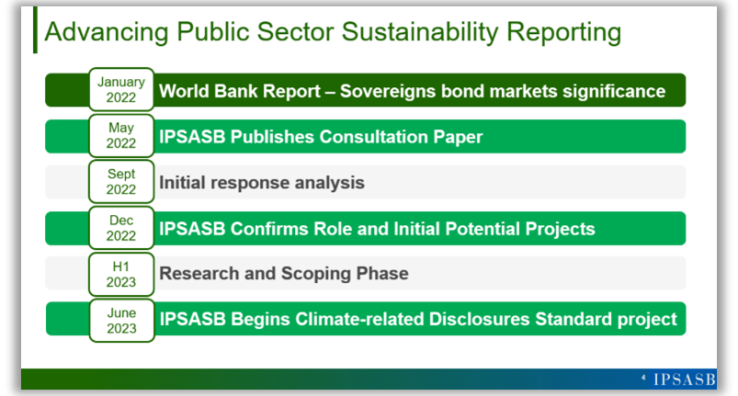
Sustainability for the public sector
There has been significant momentum in terms of sustainability reporting for the public sector over the last year and a half, which started when the World Bank called on the International Public sector Accounting Standards Board (IPSASB) to lead a consultative process to evaluate stakeholder demand for public sector specific sustainability reporting standards.
Kicking off the discussion, Patrick Kabuya, Senior Governance Specialist at the World Bank, set the context as to why the World Bank called on IPSASB to play a leading role.
Image
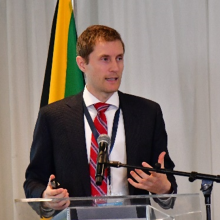
Dave Warren, Director, IPSASB, then set out IPSASB’s progress to date in advancing public sector sustainability reporting, including its recent decision to begin developing the first standard on climate-related disclosures, given that reporting on climate change is one of the most important issues for governments, which need to measure and manage their crucial contributions and actions to address the global climate emergency.
Finally, the session also considered the importance of developing effective, high-quality, independent audit and assurance arrangements alongside the reporting standards to ensure public trust in sustainability disclosures. Archana Shirsat, Deputy Director General, Professional and Relevant SAIs Department, INTOSAI Development Initiative, highlighted the work already being done by SAIs around external oversight of sustainable development and the potential role they can play in the future.
Professionalization of the public sector
Image
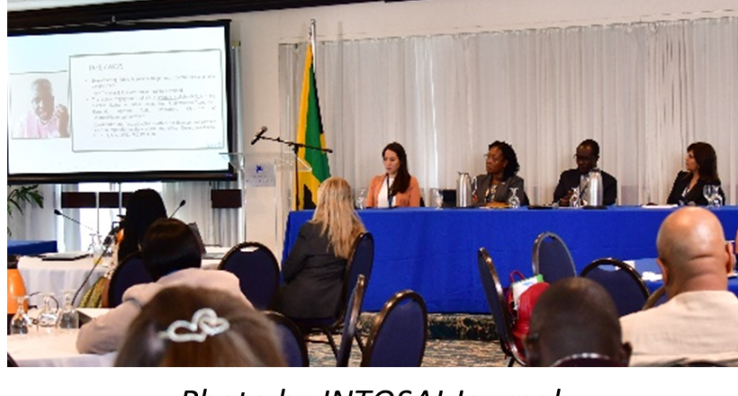
Effective PFM will only be achieved if finance professionals have the right skills and knowledge and if the public sector is able to attract and retain the right people. But this is becoming more challenging in a world where the public sector is increasingly competing for talent.
This session examined the role of the accountancy profession in supporting the public sector to build their financial capacity and capabilities as part of the wider PFM improvements.
Shelly-Ann Mohammed, ACCA’s Head of the Caribbean, started the session by outlining what professionalization means in a public sector context, and key steps along the journey to professionalization.
Image
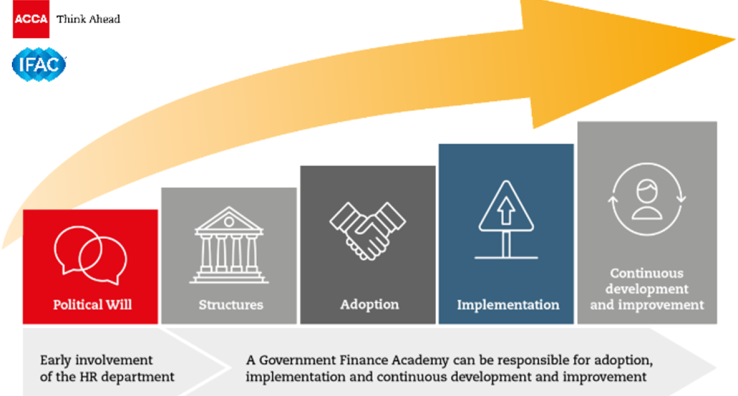
Tsakani Maluleke, the Auditor General of South Africa, shared insights on the role of the Office of the Auditor General in supporting the professionalization of the public sector in South Africa, including its key success factors.
Emphasizing the importance of PFM to the work of development partners, Charles Ohene-Nyako, Senior Manager, Gavi, and Collins Acheampong, Head of Professional Services, The Global Fund, shared their perspectives on the motivation of development partners to invest in PAO capacity building initiatives.
Partnering for stronger SAIs and enhanced PFM
Image
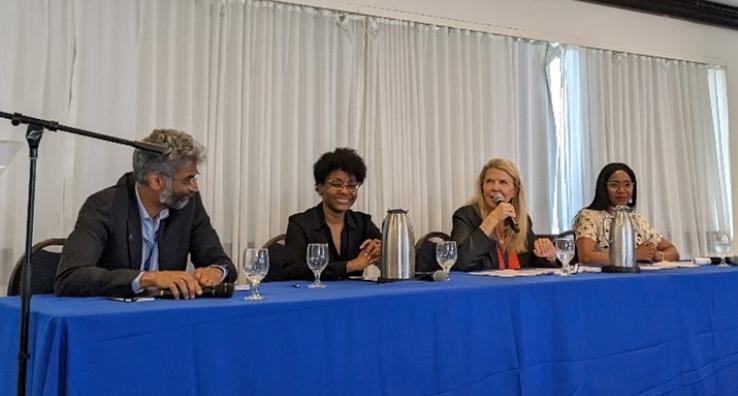
This session explored the opportunities for collaboration between the accountancy profession and SAIs to enhance public sector accountancy capacity. The panel of speakers shared experiences and discussed how a strong accountancy profession supported by an effective and well-resourced PAO and SAI could support governments to strengthen PFM and financial reporting and auditing.
Khalid Hamid, International Director, Chartered Institute of Public Finance and Accountancy (CIPFA), moderated the discussion between:
- Adenike Oyeyiola, Practice Manager, Governance Global Practice, World Bank, who provided her perspective on the main capacity challenges for SAIs as identified through the Public Expenditure and Financial Accountability (PEFA) assessments in the Caribbean region.
- Sheree Ebanks, CEO of the Cayman Islands Institute of Professional Accountants (CIIPA), who discussed the support CIIPA has been providing to the SAI in the Cayman Islands to help address challenges in the accrual accounting adoption and implementation. This support included training to build the technical capacity of the SAI.
- Pamela Munroe Ellis, the Auditor General of Jamaica, who shared the experience of SAI Jamaica and its pivotal role in supporting Jamaica’s PFM journey.

